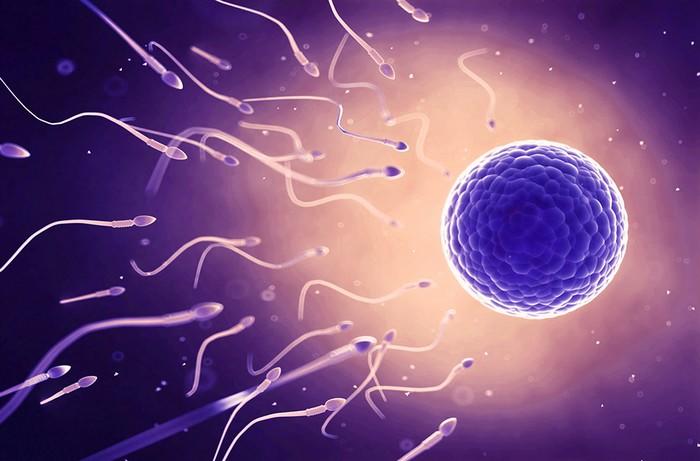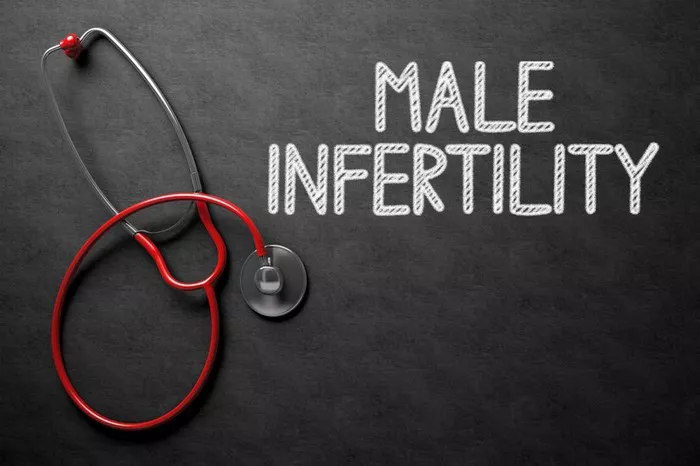Infertility can affect both men and women, and it is a condition that is often overlooked when it comes to male health. While many factors contribute to male infertility, infections are a significant cause that can impact fertility in various ways. Infections in the male reproductive system can damage sperm production, quality, and motility, making it difficult for men to father children. Understanding the different types of infections that can cause infertility is important for men who are trying to conceive. This article will explore various infections that contribute to male infertility, their effects, symptoms, and treatment options.
Introduction to Male Infertility
Male infertility is defined as the inability to achieve pregnancy after a year or more of regular, unprotected intercourse. In about one-third of cases, male infertility is the primary cause. Infections can lead to male infertility by causing damage to the reproductive organs, decreasing sperm production, or blocking the passage of sperm.
Infections that cause infertility in males often affect the testes, prostate, or seminal vesicles, where sperm are produced or stored. These infections may lead to issues such as low sperm count, poor sperm motility, or the inability to ejaculate sperm.
Recognizing infections as a potential cause of infertility can help in early diagnosis and treatment, allowing for better outcomes. However, not all infections lead to infertility, and many cases are treatable with appropriate medical intervention.
Infections That Cause Male Infertility
Chlamydia and Gonorrhea
Chlamydia and gonorrhea are two common sexually transmitted infections (STIs) that can significantly impact male fertility. Both infections are caused by bacteria and can be transmitted through unprotected sexual contact. While many people may not experience symptoms, these infections can lead to serious complications if left untreated.
Chlamydia can infect the urethra, epididymis, or testes, causing inflammation and scarring. This inflammation can lead to blockages in the reproductive tract, which can prevent sperm from being ejaculated. Chronic infections can lead to permanent damage to the reproductive organs, reducing fertility.
Gonorrhea, caused by the bacterium Neisseria gonorrhoeae, can similarly infect the urethra, prostate, or epididymis. It can cause painful urination, discharge, and swelling, and in severe cases, it can lead to infertility by obstructing the sperm’s passage or damaging the structures involved in sperm production.
Both infections are treatable with antibiotics, but if left untreated, they can lead to irreversible damage to the male reproductive system and cause infertility.
Orchitis (Testicular Infection)
Orchitis is an infection of the testes that can result from a variety of bacterial or viral infections. The most common viral cause of orchitis is the mumps virus. Mumps orchitis typically affects men who contract the mumps virus after puberty, leading to swelling and pain in the testicles.
Orchitis can lead to decreased sperm production and, in severe cases, testicular atrophy (shrinkage). When both testes are affected, it can result in permanent infertility. Bacterial orchitis is typically caused by sexually transmitted infections like chlamydia and gonorrhea or urinary tract infections that spread to the testes.
Treatment for orchitis depends on the underlying cause. If bacterial, antibiotics can resolve the infection and reduce inflammation. However, viral orchitis caused by the mumps virus has no specific antiviral treatment. In either case, early treatment is crucial to minimize damage and preserve fertility.
Prostatitis
Prostatitis is the inflammation of the prostate gland, often caused by bacterial infections. Prostatitis can cause pain during urination and ejaculation, and it can affect sperm quality. The infection can lead to a decrease in the number of sperm produced or can affect sperm motility, reducing the chances of fertilizing an egg.
Prostatitis can also result in chronic pelvic pain and difficulty achieving or maintaining an erection, which can contribute to infertility. In some cases, prostatitis can cause scarring in the prostate, which can obstruct the ducts that release semen during ejaculation.
Treatment for prostatitis typically involves antibiotics to address the bacterial infection, and anti-inflammatory medications to relieve symptoms. It is important to seek medical treatment as soon as possible to prevent chronic complications and fertility issues.
Sexually Transmitted Infections (STIs)
Sexually transmitted infections (STIs) such as syphilis, human papillomavirus (HPV), and herpes simplex virus (HSV) can also contribute to male infertility. While the primary effect of these infections is on the genital and urinary systems, they can have a lasting impact on sperm function and the ability to achieve pregnancy.
For example, syphilis, if left untreated, can lead to damage to the reproductive organs, affecting the quality of sperm and fertility. HPV, which is primarily known for its link to cervical cancer in women, can also affect the male reproductive system. Certain strains of HPV have been shown to cause inflammation in the male genital tract, which can result in infertility.
Herpes simplex virus (HSV) can cause genital sores and lesions, and although it does not directly cause infertility, it can impact sperm quality. The chronic stress and inflammation caused by herpes outbreaks may affect sperm function over time.
Tuberculosis (TB) and Male Fertility
Tuberculosis (TB), a bacterial infection primarily affecting the lungs, can also impact male fertility. While TB is not as common as other infections that cause infertility, it can spread to the reproductive organs and cause complications. Genital tuberculosis can lead to inflammation of the epididymis, testes, or seminal vesicles, potentially leading to infertility.
TB-related infertility can be challenging to treat, and it may require long-term antibiotic treatment to clear the infection. In severe cases, surgical intervention may be needed to remove infected tissue and restore fertility.
Human Immunodeficiency Virus (HIV)
Human immunodeficiency virus (HIV) is a virus that attacks the immune system and can lead to acquired immunodeficiency syndrome (AIDS). While HIV does not directly cause infertility, the virus and its associated treatments can affect sperm production and function. HIV-positive men may experience hormonal imbalances that reduce sperm count, motility, and quality.
HIV can also make men more susceptible to other infections that directly impact fertility. Additionally, antiretroviral medications used to treat HIV can sometimes interfere with sperm production, although this effect varies from person to person.
HIV treatment aims to suppress the virus and improve overall health, which may help to preserve fertility in some men. However, men living with HIV may need to consult with fertility specialists to explore options for conception.
Urinary Tract Infections (UTIs) and Infertility
Urinary tract infections (UTIs) are common bacterial infections that affect the urethra, bladder, or kidneys. UTIs in men are less common but can occur, especially in older men or those with underlying health conditions. If the infection spreads to the prostate or testes, it can impact male fertility.
While UTIs themselves do not directly cause infertility, untreated infections can lead to prostatitis or epididymitis, which can reduce sperm count and motility. Prompt treatment with antibiotics is necessary to prevent further complications.
Conclusion
Infections are a significant cause of male infertility, and they can affect sperm production, motility, and overall reproductive health. Early diagnosis and treatment are key to preventing long-term damage to the reproductive system. It is essential for men to be aware of the symptoms of these infections and seek medical help if they suspect an infection is affecting their fertility.
While many infections can be treated with antibiotics or antiviral medications, it is important to remember that some infections may cause permanent damage to the reproductive organs, which can impact fertility. By addressing infections early and following proper treatment protocols, many men can preserve their fertility and improve their chances of conception. If a man is struggling with infertility, it is important to consult with a healthcare provider to identify the underlying cause and explore appropriate treatment options.
Related topics:
























